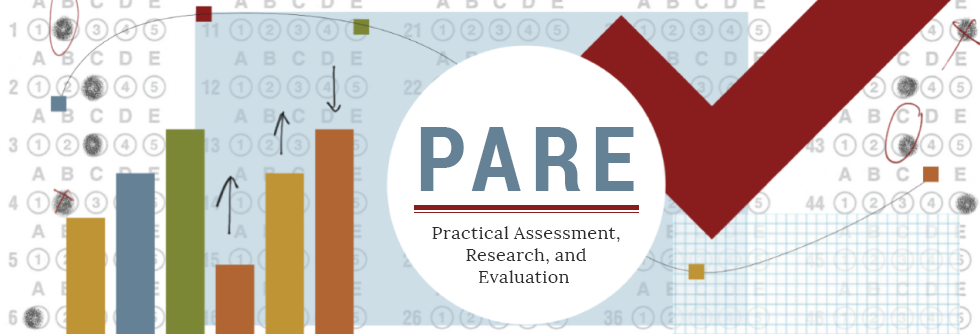A Comparison of Conventional and Liberal (Free-Choice) Multiple-Choice Tests
- Sylvia Jennings
- Martin Bush
Abstract
We compare conventional multiple-choice tests with so-called “liberal” multiple-choice tests, also known as “free-choice” tests, from a theoretical standpoint. The style of the questions is identical in these two alternative test formats, but in a liberal/free-choice test candidates may select as many options per question as they wish; the marking scheme penalises incorrect selections via negative marking, to the extent that candidates have nothing to gain through blind guesswork. We show that in the absence of blind guesswork candidates really do get the marks they deserve in a liberal/freechoice test, since the format of the test does not introduce any statistical distribution whatsoever. This is the case even when the candidates have partial knowledge and can therefore engage in educated guesswork. By contrast, in conventional multiple-choice tests candidates will engage in guesswork whenever they are unsure of the correct answer. We also show that liberal/free-choice tests reward partial knowledge more generously than conventional tests do, while on the other hand they punish misinformed students more severely than conventional tests do.
Keywords: Test Construction, Test Format, Standardized Tests, multiple choice, guessing, options, partial knowledge
How to Cite:
Jennings, S. & Bush, M., (2006) “A Comparison of Conventional and Liberal (Free-Choice) Multiple-Choice Tests”, Practical Assessment, Research, and Evaluation 11(1): 8. doi: https://doi.org/10.7275/4q8w-5h20
Downloads:
Download PDF
View PDF
1127 Views
129 Downloads
